
Exciting new series on “Voice, Body and Movement for Lawyers – How to connect with the jury and find Justice Through Dramatic Technique!”
Click here to find out more
This webinar focuses on ways to capture more revenue by eliminating clients’ excuses for non-payment, late payment, reduced payment, or complaints about fees. Clients expect invoices to arrive in a timely manner and to contain sufficient information to describe the services provided, written in a way they can understand. When written from the client’s point of view, invoices can show progress vis-a-vis the expectations set in the engagement letter. We will discuss the ethics related to setting and collecting fees, referencing both the ABA and New York State Rules of Professional Responsibility as well as relevant ethics opinions and articles.
You will learn:
• How to meet the pricing and billing expectations of 21st century clients
• How to discuss billing and pricing with clients
• Procedures you should have in place to set and meet client expectations
• Adding payment plans and other options to meet clients halfway when they are struggling financially
• Modern payment alternatives
ABA Model Rules of Professional Responsibility, New York Rules of Professional Conduct, and ethics opinions governing billing and payments, including:
• Communication with clients about billing
• Reasonableness of fees and scope of work
• Changing fees during representation
• Retainer fees
• Acceptability of alternative payment methods
• Trust accounts and fiduciary duties
• Engagement agreements
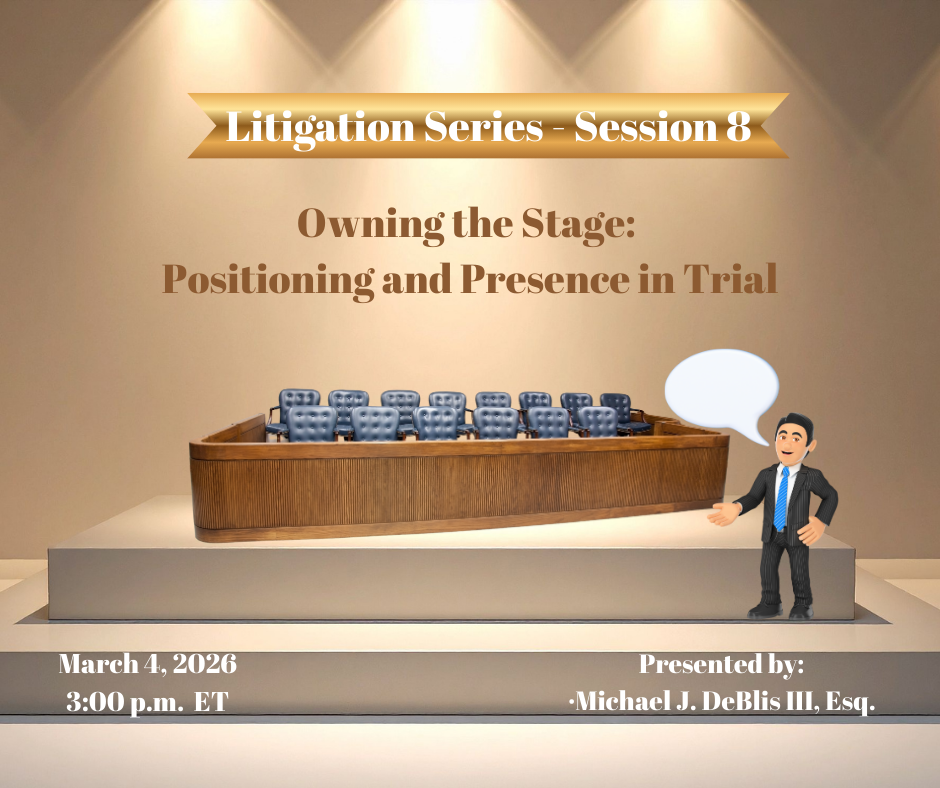
This presentation explores courtroom staging—how movement, spatial awareness, posture, and pre...
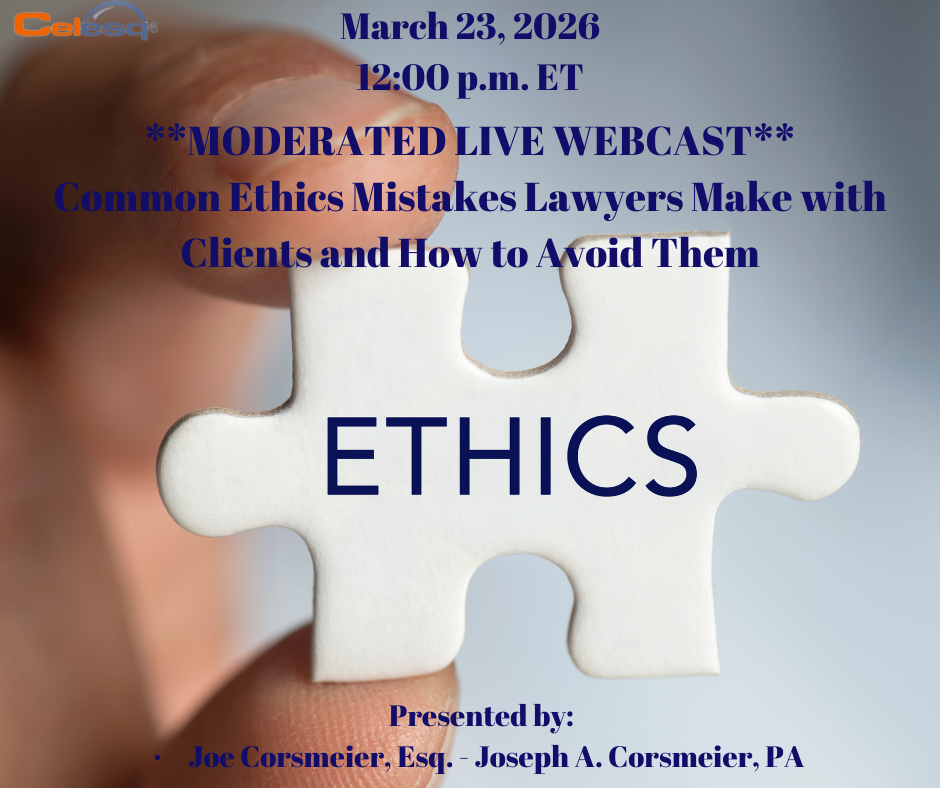
Many lawyers may not fully understand the Bar rules and ethical considerations regarding client repr...

United States patent law and the United States Patent and Trademark Office’s patent-related gu...
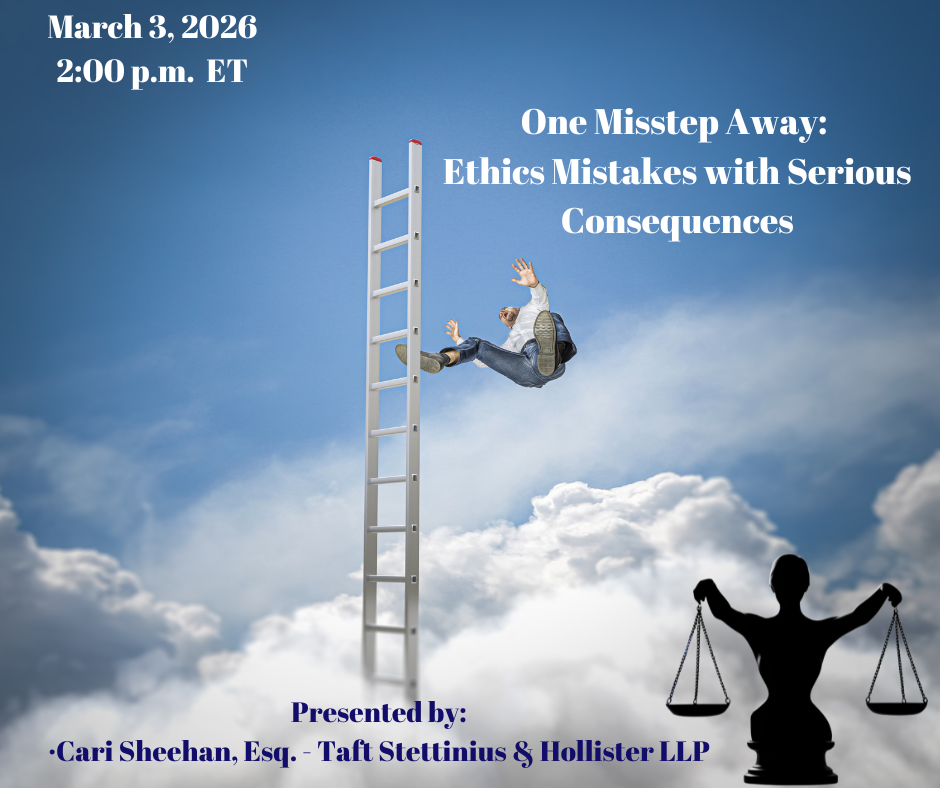
This ethics program examines common, but often avoidable, professional responsibility mistakes that ...
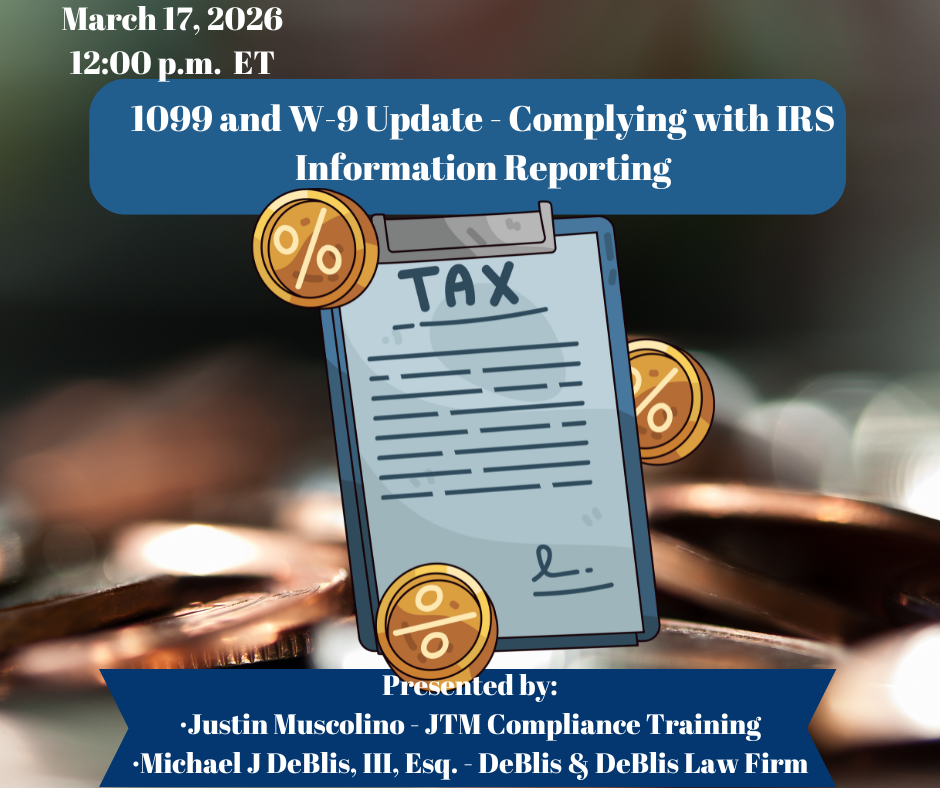
This CLE program covers the most recent changes affecting IRS information reporting, with emphasis o...

Disasters, whether natural or manmade, happen. Disasters can impact the practice of law and, among o...
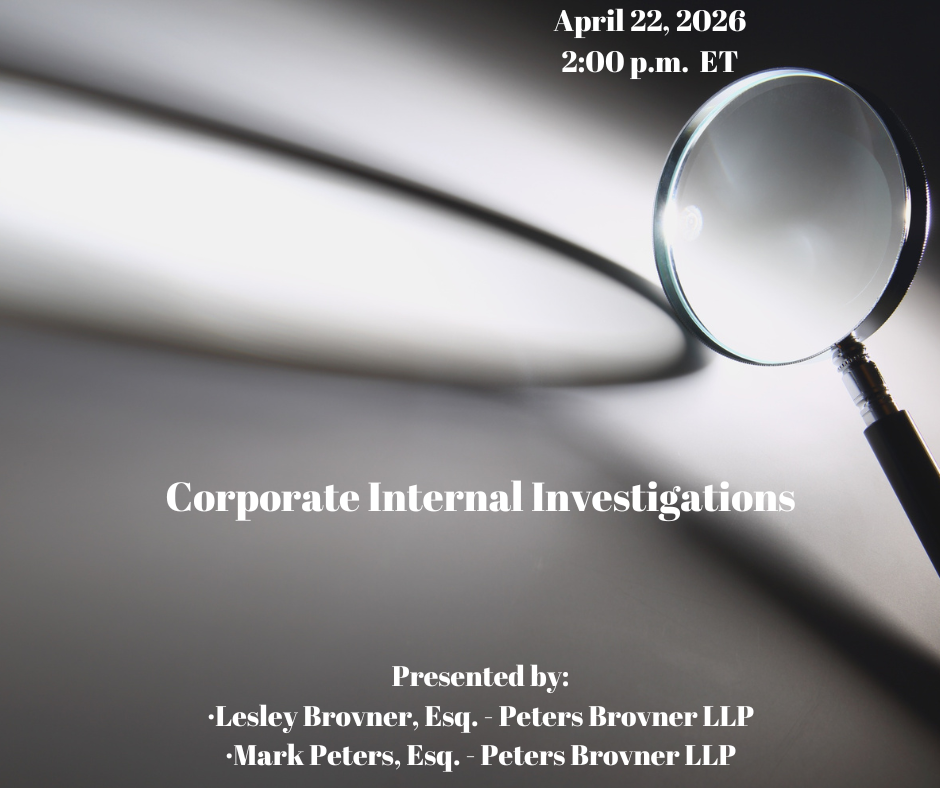
The CLE will cover the Ins and Outs of Internal Corporate Investigations, including: Back...
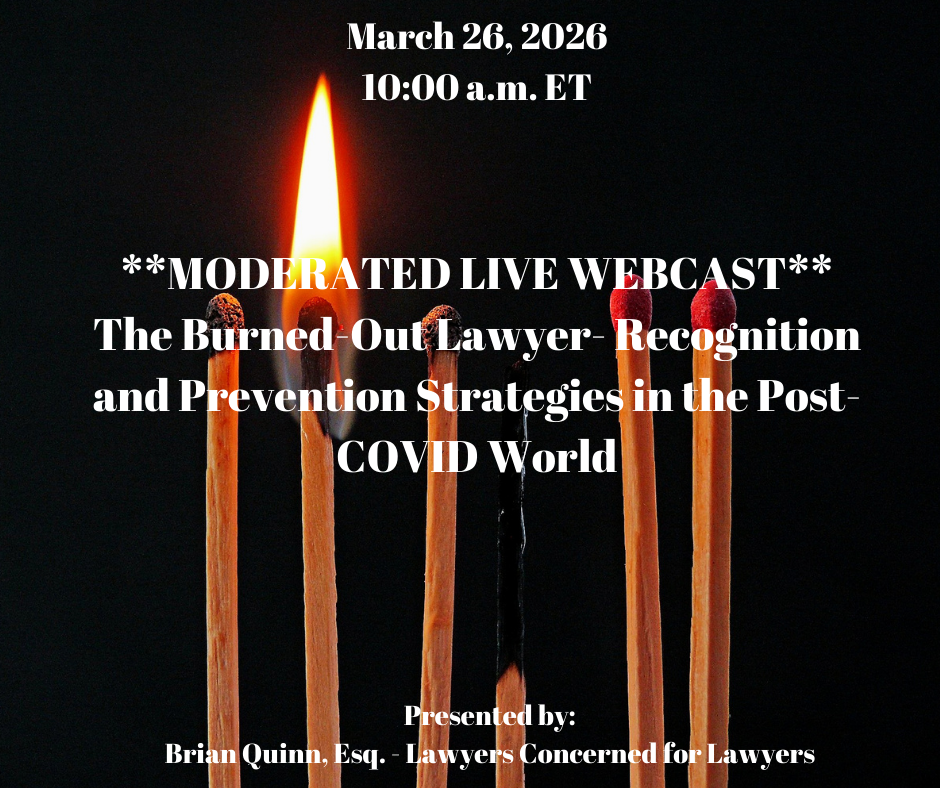
If there is one word we heard during our journey through the pandemic and continue to hear more than...
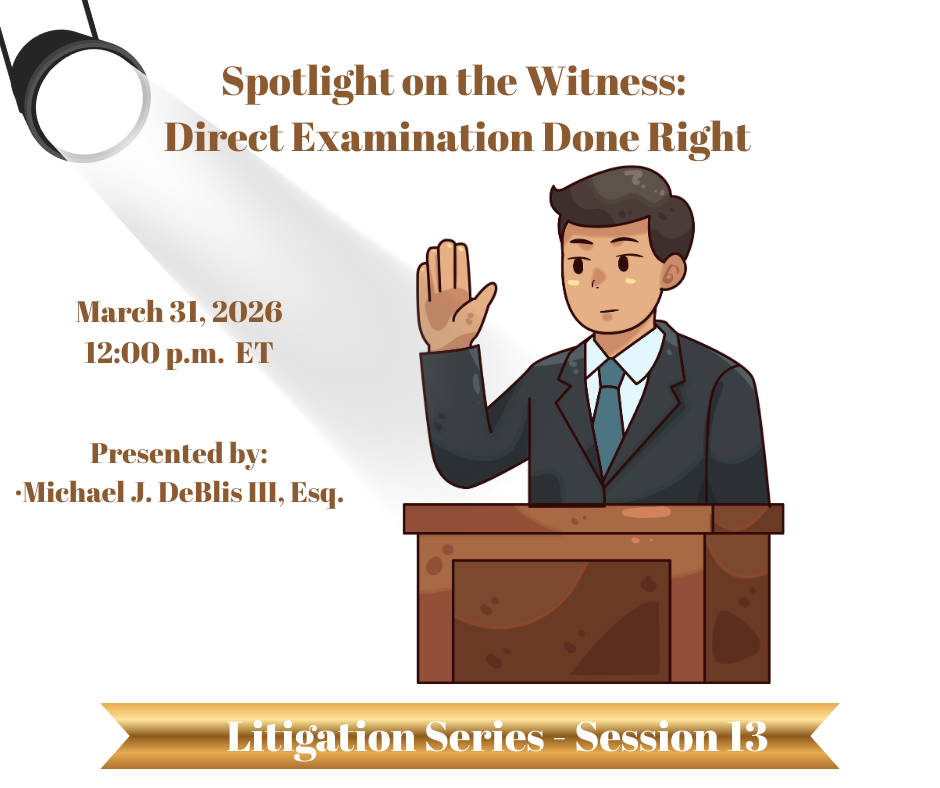
The direct examination presentation outlines how attorneys can elicit truthful, credible testimony w...
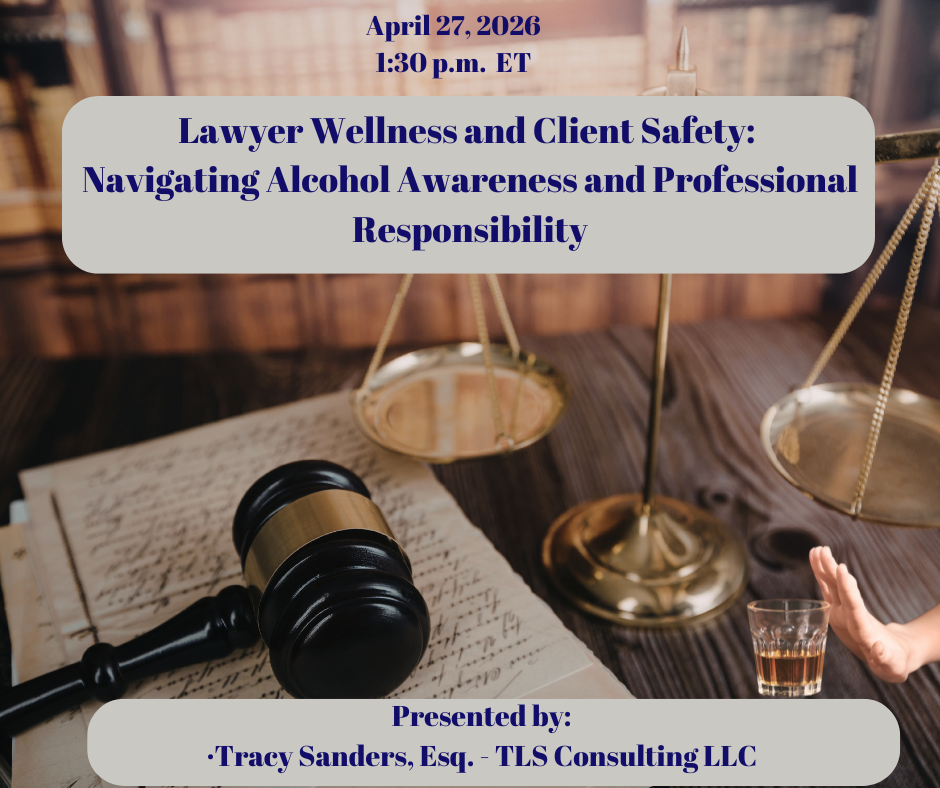
This continuing legal education (CLE) program highlights the intersection of lawyer wellness, alcoho...